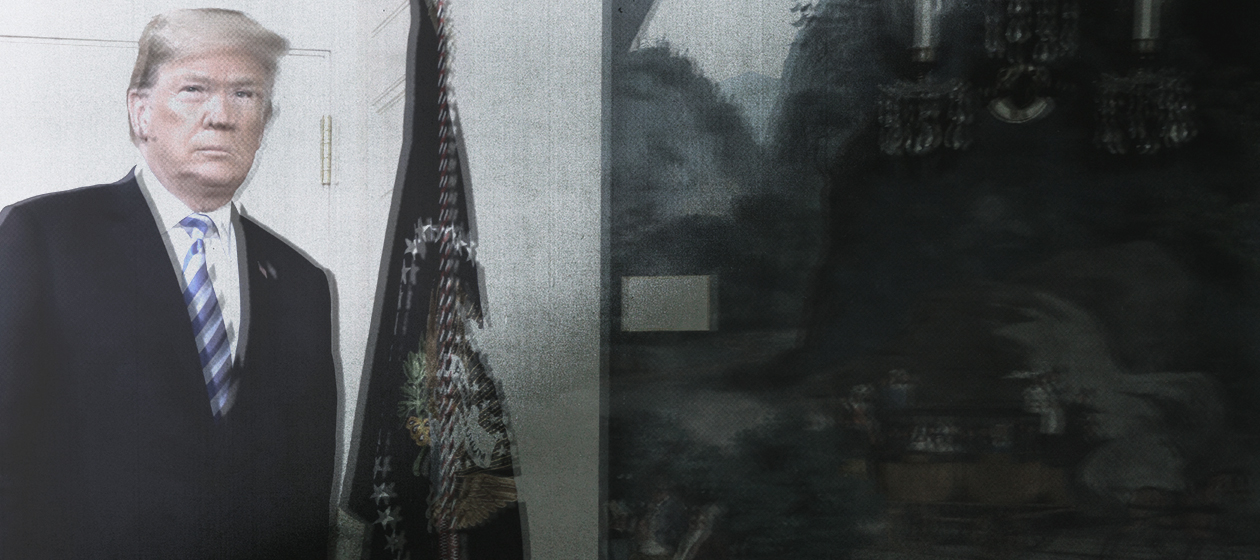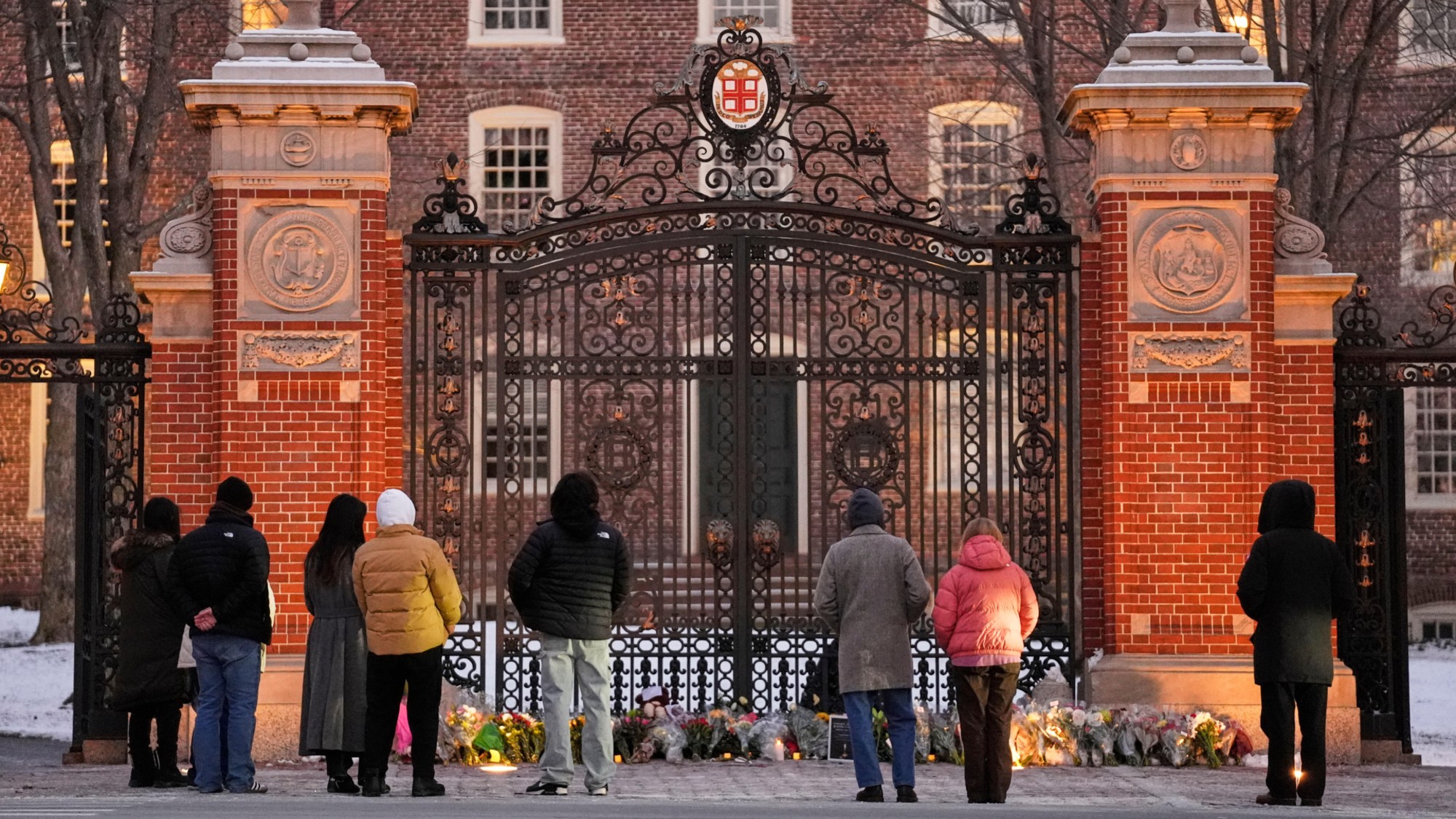America's inevitable war with Iran
President Trump just recklessly ripped up the Iran nuclear deal — and brought us much closer to war


What happens now that President Trump has announced America's withdrawal from the nuclear deal with Iran?
War.
Of course, nothing is certain in international affairs, and that's even more true with Mr. Impetuous sitting behind the Resolute Desk. But it's quite likely that the scuttling of the Obama administration's signature foreign policy achievement has set us on a path that will end in war with Iran.
The Week
Escape your echo chamber. Get the facts behind the news, plus analysis from multiple perspectives.

Sign up for The Week's Free Newsletters
From our morning news briefing to a weekly Good News Newsletter, get the best of The Week delivered directly to your inbox.
From our morning news briefing to a weekly Good News Newsletter, get the best of The Week delivered directly to your inbox.
I use the word "war" intentionally. I don't think we will attempt a ground invasion and occupation of Iran as we did 15 years ago in Iraq. That occupation was a disaster, precipitating an insurgency that tore the country apart and eventually gave rise to the Islamic State. Iraq is a nation of 25 million people. Iran's population is 80 million. Unless Trump plans on instituting conscription for the first time since the early 1970s, there will be no American occupation of Iran.
But that doesn't mean we won't be going to war. "Regime change" isn't a "military action," as we've euphemistically come to refer to our habit of firing dozens or hundreds or thousands of precision-guided missiles at countries thousands of miles from our borders. It is, on the contrary, a blatant act of war — the launching of deadly weaponry against a sovereign nation with an eye to overthrowing its government. If that isn't war, nothing is.
The fact that the United States is so powerful that it can and frequently does wage war in this way — from a great distance, with the impunity that comes from the incapacity of the target of our aerial assault to meaningfully strike back at us — proves only that the battle will be a horrible mismatch. It's like an adult well practiced in martial arts going out to subdue a trash-talking 8-year-old who's wielding a whiffle bat.
America's hawks would surely take issue with that whiffle bat analogy, since Tehran has long wanted to build a nuclear arsenal. And many conservatives believe the Obama administration's Iran deal did far too little to forestall Iran's nuclear dreams. But the truth is, Iran is in compliance with the nuclear deal, has failed for decades to build nuclear weapons, and is utterly incapable of matching the massive arsenals of the U.S., Israel, and other Western powers.
A free daily email with the biggest news stories of the day – and the best features from TheWeek.com
The Iran deal, whatever its flaws and despite the president's lies and exaggerations on Tuesday afternoon, was clearly keeping Iran from acquiring a nuclear capacity from now until the deal began to expire in 2025. If the aim is to keep Iran from building nuclear weapons, then isn't a deal that achieves that goal for a decade or more obviously better than having no deal at all?
The answer to that question is obvious only if your goal really is to prevent Iran from acquiring nukes. But if, instead, your real aim is to overthrow the Iranian government, the deal is a nuisance.
The idea that current circumstances demand that the United States depose the government of Iran is absurd. But that doesn't mean it won't happen. Viewed in light of the mess that American foreign policy has become and the intuitive love among Very Important People in both major parties of using military force to teach punitive lessons to bad actors and evil doers the world over, the absurdity is a sign that it's actually more likely than not to happen.
The likelihood becomes higher when you take into account the commander in chief's ignorance of the world and instinctual hostility to each and every one of Barack Obama's achievements. It becomes higher still when we factor in Trump's staff, including newly minted National Security Adviser John Bolton, who has been longing to throttle the mullahs in Tehran since the latter years of the Reagan administration, and consigliere Rudy Giuliani, who shortly before joining Trump's legal team gave a rabid speech to the MEK, a militant group of Iranian exiles that agitates for the violent overthrow of the country's theocracy. In his speech Giuliani led the crowd in a chant of "regime change" shortly after assuring them that the administration was committed both to ripping up the Iran deal and toppling the Iranian government.
One down, one to go.
Now add in pressure exerted by Saudi Arabia, which would desperately love us to solve their own Iran problem for them. (This problem became vastly worse when we overthrew Saddam Hussein, removing Tehran's primary regional adversary from the equation, and we're already "helping" them address it in their proxy war with Iran in Yemen.) That leaves us with something close to a perfect storm of over-determination in the direction of war.
Afghanistan is a chaotic mess more than 16 years after we went looking for Osama bin Laden. Iraq is still reeling a decade and a half after our invasion. Libya is still struggling to right itself seven years after we led NATO on a mission to get rid of Moammar Gadhafi. And the U.S. military is swatting at pests across wide swaths of North Africa and South Asia. This is the legacy of American foreign policy over the last two decades. It's what Trump inherited. But he also inherited an agreement that added a modicum of stability to the mix in the form of the Iran deal. Now he's gone ahead and torn it up, apparently in the asinine belief that stability is for suckers.
On the eve of the Iraq War, with the U.S. on the verge of defying the U.N. and worldwide public opinion, which was arrayed against the invasion, critics began to say that America was acting like a drunk driver on the world stage.
They were right. And 15 years later, we're still drinking.
Damon Linker is a senior correspondent at TheWeek.com. He is also a former contributing editor at The New Republic and the author of The Theocons and The Religious Test.
-
 Which side is JD Vance taking in MAGA’s infighting?
Which side is JD Vance taking in MAGA’s infighting?Today’s Big Question GOP insiders are battling over antisemitism with eye on 2028
-
 Campus security is in the public eye again after the Brown shooting
Campus security is in the public eye again after the Brown shootingTalking Points Questions surround a federal law called the Clery Act
-
 9 new cookbooks begging to be put to good winter use
9 new cookbooks begging to be put to good winter usethe week recommends Booze-free drinks, the magic versatility of breadcrumbs and Japanese one-pot cooking
-
 Bari Weiss’ ‘60 Minutes’ scandal is about more than one report
Bari Weiss’ ‘60 Minutes’ scandal is about more than one reportIN THE SPOTLIGHT By blocking an approved segment on a controversial prison holding US deportees in El Salvador, the editor-in-chief of CBS News has become the main story
-
 Has Zohran Mamdani shown the Democrats how to win again?
Has Zohran Mamdani shown the Democrats how to win again?Today’s Big Question New York City mayoral election touted as victory for left-wing populists but moderate centrist wins elsewhere present more complex path for Democratic Party
-
 Millions turn out for anti-Trump ‘No Kings’ rallies
Millions turn out for anti-Trump ‘No Kings’ ralliesSpeed Read An estimated 7 million people participated, 2 million more than at the first ‘No Kings’ protest in June
-
 Ghislaine Maxwell: angling for a Trump pardon
Ghislaine Maxwell: angling for a Trump pardonTalking Point Convicted sex trafficker's testimony could shed new light on president's links to Jeffrey Epstein
-
 The last words and final moments of 40 presidents
The last words and final moments of 40 presidentsThe Explainer Some are eloquent quotes worthy of the holders of the highest office in the nation, and others... aren't
-
 The JFK files: the truth at last?
The JFK files: the truth at last?In The Spotlight More than 64,000 previously classified documents relating the 1963 assassination of John F. Kennedy have been released by the Trump administration
-
 'Seriously, not literally': how should the world take Donald Trump?
'Seriously, not literally': how should the world take Donald Trump?Today's big question White House rhetoric and reality look likely to become increasingly blurred
-
 Will Trump's 'madman' strategy pay off?
Will Trump's 'madman' strategy pay off?Today's Big Question Incoming US president likes to seem unpredictable but, this time round, world leaders could be wise to his playbook
